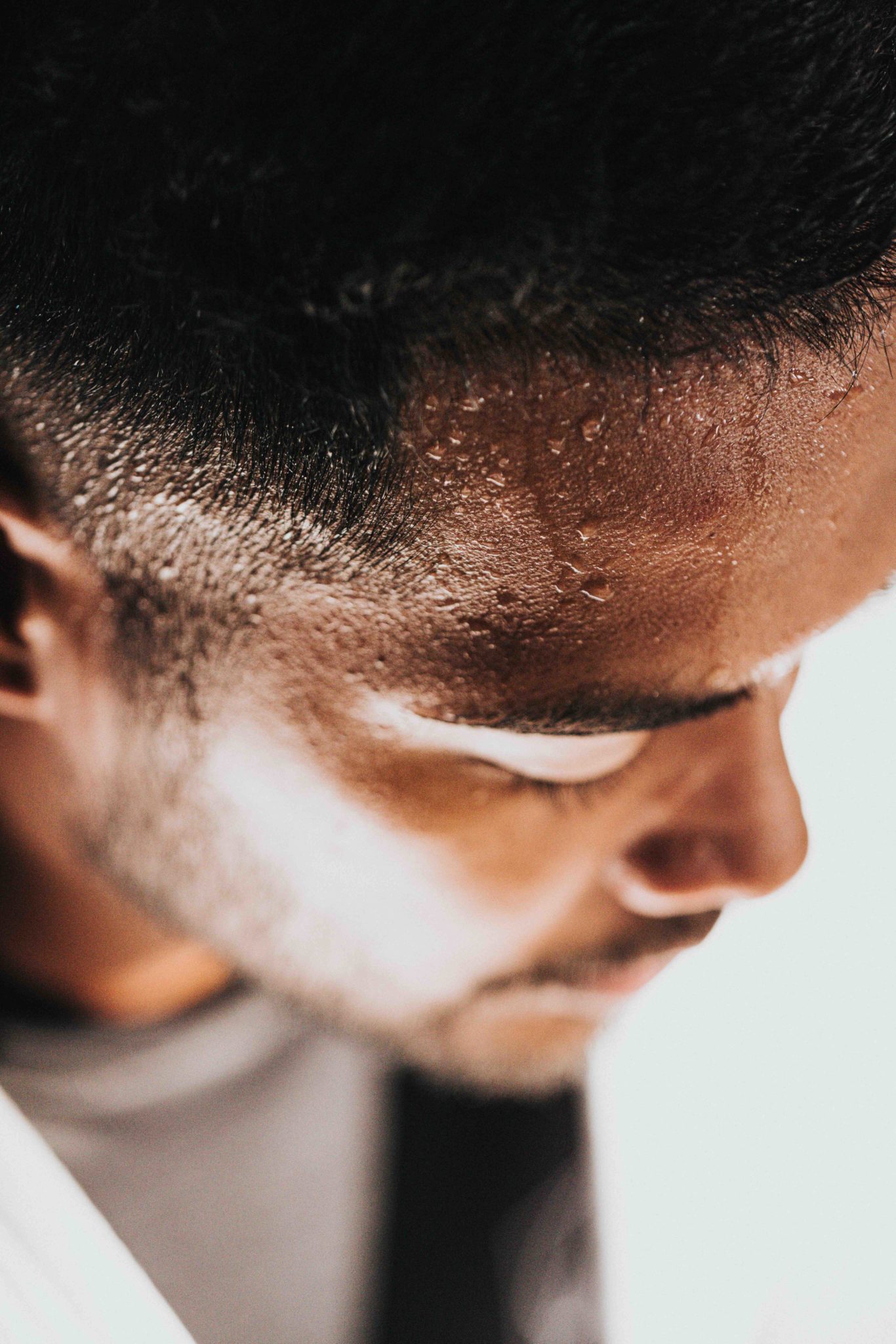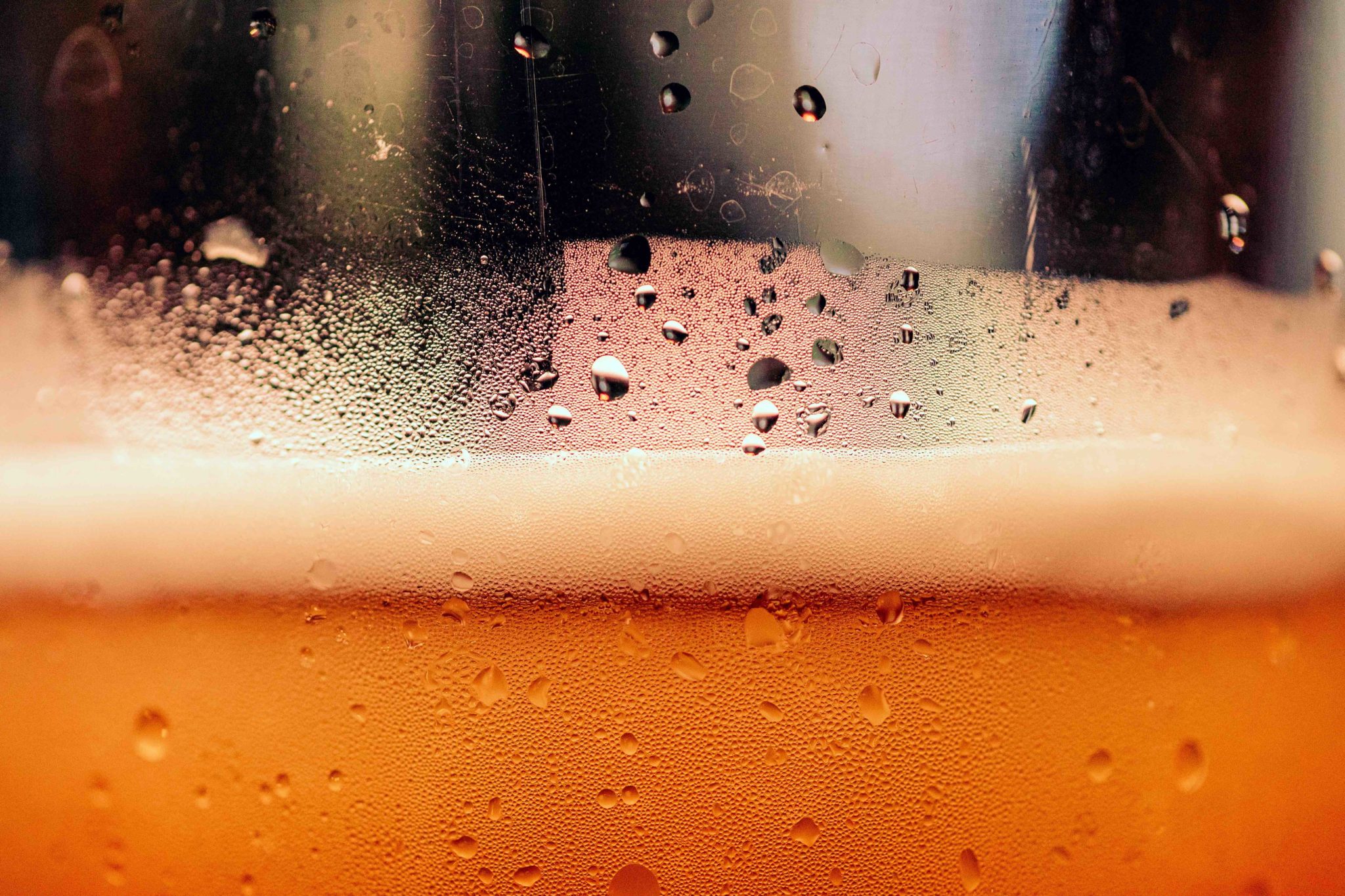Why Do I Sweat When I Drink Alcohol?
Ever noticed yourself feeling flushed, or even overheated when drinking with friends? Ever thought a nice, cold beer would help on a summer’s day—only to find yourself sweating even more?
It’s a common problem, and although it may seem minor, it can certainly be annoying if you’re out for drinks with someone you want to impress. “But what causes it?” you may ask. “Why do I sweat when I drink alcohol?”
The Truth About Alcohol and Body Temperature

First of all, is sweating an actual physical effect of alcohol, or is it all psychological? Can drinking cause sweating?
The answer is yes: Even one drink can make you feel warmer. And a few drinks can make your heart race and raise your blood pressure, further increasing the chances of flushing and sweating. But is this because alcohol is really heating you up? Or is there something else going on?
Does Alcohol Raise Body Temperature?
Although alcohol can cause you to sweat more, it is actually a misconception that drinking increases your body temperature. In fact, drinking often results in a temperature drop.
One study of alcohol’s effects on body temperature showed that sweating and the sensation of heat increased significantly 10 minutes after consuming alcohol. Body temperature, however, dropped 20 minutes after the sweating began.
In other words, alcohol tends to move heat to the perimeter of your body—making you feel warmer, while the core of your body is actually cooling down.
Why Does Alcohol Make You Sweat?
There are several reasons why alcohol can make you feel hot and sweaty. These include:
- Blood Vessel Dilation: Alcohol causes blood vessels to dilate, resulting in a quickened flow of blood from your core to your extremities, such as your fingers and toes. This can make you feel warm, cause your skin to flush, and make you sweat while you’re drinking.
- Faster Metabolism: When you drink, your metabolism kicks into overdrive to break down the alcohol you consume. An increase in the metabolic rate produces heat and may make you feel warmer.
- Hypothalamus Activation: A part of the brain called the hypothalamus controls our body temperature. When the hypothalamus senses or perceives that our body temperature is rising, such as when we drink, it sends a signal to the body to sweat to cool itself down.
In summary, your body may actually produce some extra heat while you are drinking, but most of this finds its way to the surface of your skin or your extremities. This is why you may feel hot, and even sweat profusely when you drink alcohol. But often, as mentioned above, you are not actually warmer.
What alcohol consumption really does is disrupt your ability to regulate your body temperature. This can mean releasing needed heat through sweating, and even blocking shivering when it’s cold, making it harder to warm up.
In other words, sweating while drinking can actually be somewhat dangerous in winter. Even if you feel hot, always bundle up when you go outside, and avoid trying to warm up by drinking.
Why Do I Sweat A Lot After Drinking Alcohol?

Since alcohol disrupts your body’s temperature regulation, it can also cause further sweating as the night goes on. While many people naturally experience a body temperature drop overnight as they sleep, studies show alcohol might actually block this natural cycle when one is intoxicated. This can contribute to alcohol-related insomnia, and be especially bothersome for women during menopause.
On the other hand, if you find yourself sweating the morning after you drink, this is likely a hangover symptom. A major hangover can actually result in a low-grade fever due to a blood sugar drop, dehydration, or even an immune response.
Why Do Alcoholics Sweat?
Sweating is one common symptom of alcohol withdrawal. If someone has developed alcohol dependency, they may experience excessive sweating, hot flashes, and night sweats if they stop drinking. These withdrawal symptoms are usually temporary.
Mild sweating is not always a cause for serious concern. But if heavy sweating is accompanied by fever, rapid heartbeat, confusion, or even hallucinations, one should seek medical assistance. Severe alcohol withdrawal can be life-threatening in certain cases.
Read More: Alcohol Withdrawal Symptoms: What To Expect When You Stop Drinking
Is Sweating After Drinking Alcohol a Cause for Concern?
Unless it is a symptom of alcohol withdrawal, sweating when you drink is more of an annoyance than a serious problem.
However, as mentioned above, one should be careful when drinking in cold weather. The feeling of warmth may actually mask a drop in body temperature, and sweating makes you more likely to catch a chill. In extreme cases, some people have actually died from hypothermia after spending too much time in cold weather while drunk.
As for drinking more generally, having the occasional social drink is usually nothing to be concerned about. However, if you find yourself drinking often enough that sweating from alcohol is a common issue, it may be worth cutting back on how much you consume.
Fortunately, there are new alcohol reduction options that do not require you to identify as an alcoholic, or even quit completely. You can now get weekly coaching support, anti-craving medications, handy digital tools, and more—all from an app on your smartphone.
Get in touch with a member of our team to learn more today, or find out how it works.
Will insurance cover treatment? Verify Coverage
Have Questions? Call (800) 504-5360



